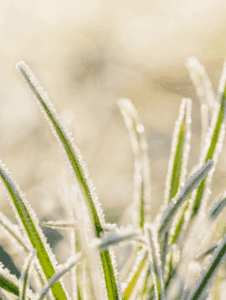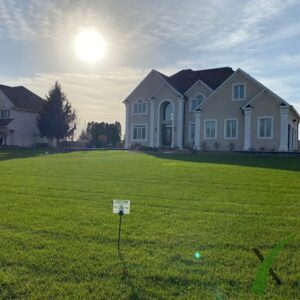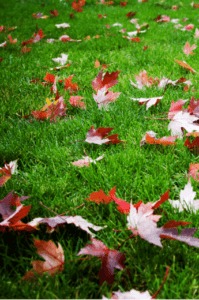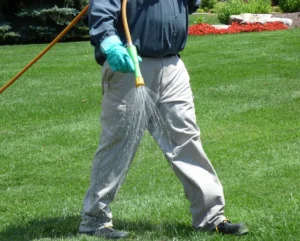Tall Fescue VS. Bermuda Grass In The Carolinas
There are two broad categories of grasses in North Carolina and South Carolina: cool-season, cool-climate grasses and warm-season, warm-climate grasses. Each of these types of grasses responds differently to hot, dry periods. The cool-season, cool-climate grasses (such as Tall Fescue) grow best at temperatures between 60 and 75 degrees and have a difficult time adjusting to hot, dry periods; they typically go dormant quickly during drought times. They also can only survive drought periods for approximately 3 weeks, after which they die.
Warm-season, warm-climate grasses (such as Bermuda Grass) are much more drought resistant, thriving in periods of temperatures between 80 and 95 degrees. These grasses can survive long periods of drought, although they will typically look dry and brown during these periods. These grasses have deep root systems, and will recover quickly and will green up again once precipitation is reintroduced into the environment.
Understanding the characteristics of each type of grass is important. For one, it helps homeowners in North and South Carolina to know which types of grass to plant to establish or re-establish a lawn. Understanding the grass types also provides important information for maintaining the health and vitality of the primary turf types. With that in mind, let’s look at two common grass-types: one a cool-season, cool-climate grass, and the other a warm-season, warm-climate grass.
Tall Fescue (Festuca arundinacea): Cool-Season, Cool-Climate Grass

Tall fescue can be grown in regions of North and South Carolina that are characterized by cooler climates – such as in the Foothills and Piedmont regions of the states. A common pasture-type cultivar that is used is called Kentucky 31; however, this cultivar is being replaced by new and more attractive types of cultivars that have a thinner blade, are darker green in color and most importantly, tolerate shade better than Kentucky 31.
One characteristic of tall fescue lawns is that they tend to thin out after summer dry spells and are in need of re-seeding in the fall. Consistent, generous irrigation of tall fescue lawns is recommended during prolonged heat and/or dry spells. If the dry/hot spells last more than 3 weeks, tall fescue lawns can die, so watering early on is critical with these lawns.
Bermuda Grass – (Cynodon dactylon): Warm-Season, Warm-Climate Grass

Bermuda grass is a dark green, dense and low growing type of turf that spreads through rhizomes and stolons. These grasses tend to have an extensive and deep root system, making them resistant to the pressure that come from heat and drought. Lawns with a high percentage of bermuda grass tend to be low maintenance.
Bermuda grasses also tend to be strong candidates for new lawns in areas where temperatures are hot. These grasses grow rapidly from seed to a full lawn in less than one year. Bermuda grasses are extremely drought-resistant, thriving during periods of high temperature. They also handle wear-and-tear well, making them the choice for high traffic areas. They also tolerate salt spray well, meaning they can be planted on the coast of North and South Carolina without a concern about salt spray.
One major drawback of bermuda grass is that it does not grow well in the shade – to the degree that if a lawn is primarily shaded, bermuda grass is not recommended as the turf of choice. Bermuda grass also grows aggressively, meaning it can take over an entire established lawn, spreading by above-ground and below-ground runners. Bermuda grass also will invade flower and shrub beds and gardens, typically resulting in the need to weed these areas often.
How Do You Know Which Grass Types are Best for Your Lawn?
Most lawns are a mixture of different grass seed varieties, with each variety making up a set percentage of the total mixture. Knowing which seed-mixture variety will work best for your lawn in North or South Carolina involves many variables. The best way to know which will provide the healthiest lawn for your area is to talk to a one of ExperiGreen Lawn Care’s Turf Experts. Give us a call today, and let’s discuss your lawn project.
Can ExperiGreen Lawn Care handle my specific grass type?
Yes! Our lawn care programs are tailored specially for tall fescue or bermuda lawns in and around Charlotte, NC. We understand what is required to keep your lawn green and healthy. Get a quote now by giving us a call or filling out this contact form.
Join Our Free Lawn Care Newsletter
Stay Up to Date With The Latest News & Updates
* We don’t share your info with anyone ever.







